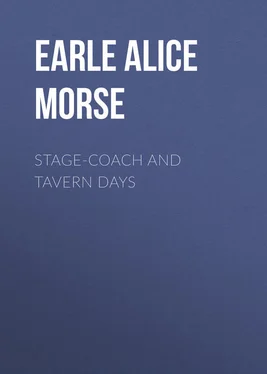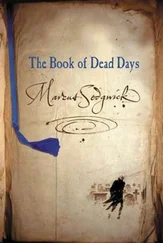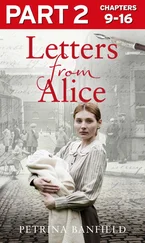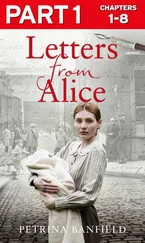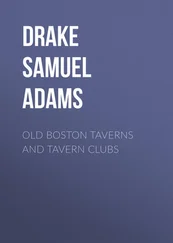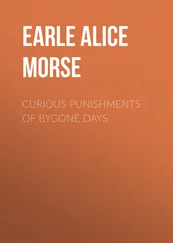Alice Earle - Stage-coach and Tavern Days
Здесь есть возможность читать онлайн «Alice Earle - Stage-coach and Tavern Days» — ознакомительный отрывок электронной книги совершенно бесплатно, а после прочтения отрывка купить полную версию. В некоторых случаях можно слушать аудио, скачать через торрент в формате fb2 и присутствует краткое содержание. Жанр: foreign_antique, foreign_prose, на английском языке. Описание произведения, (предисловие) а так же отзывы посетителей доступны на портале библиотеки ЛибКат.
- Название:Stage-coach and Tavern Days
- Автор:
- Жанр:
- Год:неизвестен
- ISBN:нет данных
- Рейтинг книги:4 / 5. Голосов: 1
-
Избранное:Добавить в избранное
- Отзывы:
-
Ваша оценка:
- 80
- 1
- 2
- 3
- 4
- 5
Stage-coach and Tavern Days: краткое содержание, описание и аннотация
Предлагаем к чтению аннотацию, описание, краткое содержание или предисловие (зависит от того, что написал сам автор книги «Stage-coach and Tavern Days»). Если вы не нашли необходимую информацию о книге — напишите в комментариях, мы постараемся отыскать её.
Stage-coach and Tavern Days — читать онлайн ознакомительный отрывок
Ниже представлен текст книги, разбитый по страницам. Система сохранения места последней прочитанной страницы, позволяет с удобством читать онлайн бесплатно книгу «Stage-coach and Tavern Days», без необходимости каждый раз заново искать на чём Вы остановились. Поставьте закладку, и сможете в любой момент перейти на страницу, на которой закончили чтение.
Интервал:
Закладка:
Constant and strenuous efforts were made from earliest days to prevent drunkenness and all tavern disorders. As early as 1637 complaints had been made that “much drunkenness, waste of the good creatures of God, mispense of time, and other disorders” had taken place at the ordinaries. Frequent laws were made about selling liquor to the “devilish bloudy salvages,” and many were the arrests and fines and punishments therefor.
Landlords were forbidden by the Court in 1645 “to suffer anyone to be drunk or drink excessively, or continue tippling above the space of half an hour in any of their said houses under penalty of 5 s. for every such offence suffered; and every person found drunk in the said houses or elsewhere shall forfeit 10 s. ; and for every excessive drinking he shall forfeit 3 s. 4 d. ; for sitting idle and continuing drinking above half an hour, 2 s. 6 d. ; and it is declared to be excessive drinking of wine when above half a pint of wine is allowed at one time to one person to drink: provided that it shall be lawful for any strangers, or lodgers, or any person or persons, in an orderly way to continue in such houses of common entertainment during meal times or upon lawful business, what time their occasions shall require.”
Drunkards were severely punished by being thrust into the bilboes, set in the stocks, and whipped. In 1632 one “James Woodward shalbe sett in the bilbowes for being drunke at New-Towne.” Robert Wright was fined twenty shillings and ordered to sit in the stocks an hour for being “twice distempered in drink.” On September 3, 1633, in Boston: —
“Robert Coles was fyned ten shillings and enjoynd to stand with a white sheet of paper on his back, whereon Drunkard shalbe written in great lres, and to stand therewith soe long as the Court find meet, for abusing himself shamefully with drinke.”
This did not reform Robert Coles, for a year later his badge of disgrace was made permanent: —
“Robert Coles for drunkenness by him committed at Rocksbury shalbe disfranchizd, weare about his neck, and so to hang upon his outwd garment a D. made of redd cloth & sett upon white: to continyu this for a yeare, & not to have it off any time hee comes among company, Vnder the penalty of xl s. for the first offence, and 5 £ for the second, and afterward to be punished by the Court as they think meet: also hee is to wear the D outwards .”
It might be inferred from the clause I have italicized that the Puritan drunkard was not without guile, and that some had worn the scarlet letter and hidden it from public view as skilfully as the moral brand is often hidden from public knowledge to-day. Women, also, were punished severely for “intemperate drinking from one ordinary to another,” but such examples were rare.
Lists of names of common drunkards were given to landlords in some towns (among them New Castle, New Hampshire), and landlords were warned not to sell liquor to them. Licenses were removed and fines imposed on those who did not heed the warning.
The tithing-man, that amusing but most bumptious public functionary of colonial times, was at first the official appointed to spy specially upon the ordinaries. He inspected these houses, made complaint of any disorders he discovered, and gave in to the constable the names of idle drinkers and gamers. He warned the keepers of public houses to sell no more liquor to any whom he fancied had been tippling too freely. John Josselyn, an English visitor in Boston in 1663, complained bitterly thus: —
“At houses of entertainment into which a stranger went, he was presently followed by one appointed to that office, who would thrust himself into the company uninvited, and if he called for more drink than the officer thought in his judgement he could soberly bear away, he would presently countermand it, and appoint the proportion, beyond which he could not get one drop.”
Now that certainly was trying. Nor could it have been agreeable to would-be cheerful frequenters of Greyhound Tavern, in Roxbury, to have godly Parson Danforth, when he saw from his study windows any neighbors or strangers lingering within the tavern doors, come sallying forth from his house across the way, and walk sternly into their company, and, as he said, “chide them away.” Patient must have been the Greyhound’s landlord to have stood such pious meddling and hindrance to trade.
Governor Winthrop gives an account of the exploits of a Boston constable in 1644, which shows the restraint held over a lodger in a Boston ordinary at that date.
“There fell out a troublesome business in Boston. An English sailor happened to be drunk and was carried to his lodging; and the Constable (a Godly man and much zealous against such disorders) hearing of it, found him out, being upon his bed asleep; so he awaked him, and led him to the stocks, no magistrate being at home. He being left in the stocks, some one of La Tours French gentlemen visitors in Boston lifted up the stocks and let him out. The Constable hearing of it, went to the Frenchman (being then gone and quiet) and would needs carry him to the stocks. The Frenchman offered to yield himself to go to prison but the Constable, not understanding his language, pressed him to go to the stocks. The Frenchman resisted and drew his sword. With that company came in and disarmed him, and carried him by force to the stocks, but soon after the Constable took him out and carried him to prison.”
Winthrop gravely enumerates the faults of the constable, such as his “transgressing the bounds of his office, the fruits of ignorant and misguided zeal, not putting a hook on the stocks,” etc., and the matter bade fair to assume some gravity, since it was deemed in France “most ignominious to be laid in the stocks.” Yet Winthrop took care not to rebuke the Constable in public lest he “discourage and discountenance an honest officer.”
It has been said that the homely injunction “to mind your own business” was the most difficult lesson New Englanders ever had to learn, and that even now it has been acquired and practised in the cities only, not in the country.
Administration of government in those days certainly consisted much of meddlesome interference in the private affairs of daily life. Experience has since taught that the free-will of the citizen is the best regulator in such matters.
It is one of the curiosities of old-time legislation that the use of tobacco was in earliest colonial days plainly regarded by the magistrates and elders as far more sinful, degrading, and harmful than indulgence in intoxicating liquors. Both the use and the planting of it were forbidden, the latter being permitted in small quantities “for meere necessitie, for phisick, for preservaceon of the health, and that the same be taken privately by auncient men.” Landlords were ordered not to “suffer any tobacco to be taken into their houses” on penalty of a fine to the “victualler,” and another to “the party that takes it.” The “Creature called Tobacko” seemed to have an immortal life. The laws were constantly altered and were enforced, still tobacco was grown and was smoked. Soon it was forbidden to “take tobacco in any wine or common victual house, except in a private room there, so as the master of said house nor any guest there shall take offense thereat; which, if any do, the said person shall forbear upon pain of two shillings sixpence for every such offense.” No one could take tobacco “publicquely” nor in his own house or anywhere else before strangers. Two men were forbidden to smoke together. Windsor required a physician’s certificate ere it could be used. No one could smoke within two miles of the meeting-house on the Sabbath day. There were wicked backsliders who were caught smoking around the corner of the meeting-house, and others on the street, and they were fined, and set in the stocks, and in cages. Until within a few years there were New England towns where tobacco-smoking was prohibited on the streets, and innocent cigar-loving travellers were astounded at being requested to cease smoking. Mr. Drake wrote in 1886 that he knew men, then living, who had had to plead guilty or not guilty in a Boston police court for smoking in the streets of Boston. In Connecticut in early days a great indulgence was permitted to travellers – a man could smoke once during a journey of ten miles.
Читать дальшеИнтервал:
Закладка:
Похожие книги на «Stage-coach and Tavern Days»
Представляем Вашему вниманию похожие книги на «Stage-coach and Tavern Days» списком для выбора. Мы отобрали схожую по названию и смыслу литературу в надежде предоставить читателям больше вариантов отыскать новые, интересные, ещё непрочитанные произведения.
Обсуждение, отзывы о книге «Stage-coach and Tavern Days» и просто собственные мнения читателей. Оставьте ваши комментарии, напишите, что Вы думаете о произведении, его смысле или главных героях. Укажите что конкретно понравилось, а что нет, и почему Вы так считаете.
